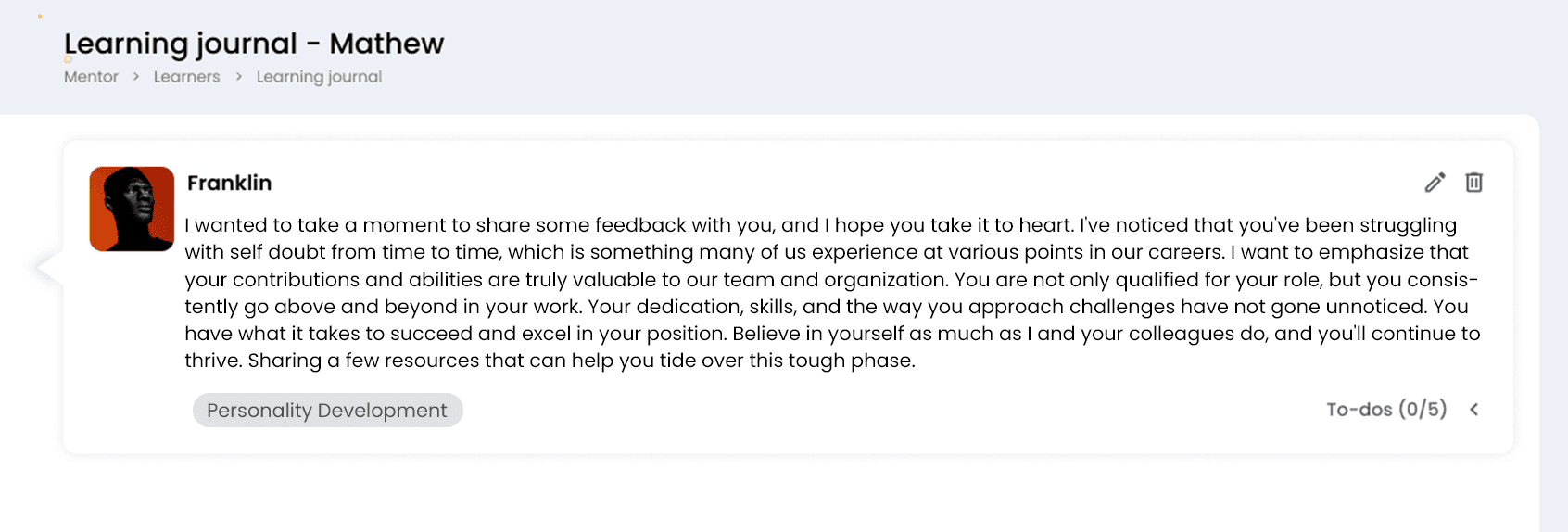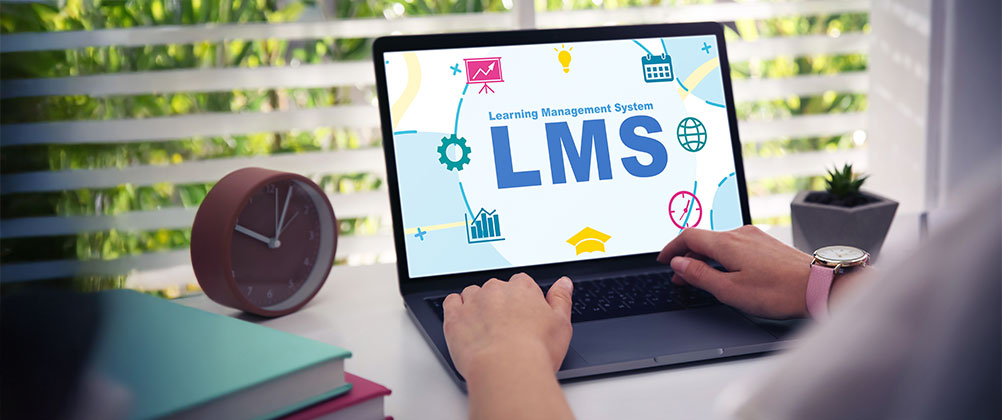5 Ways to Use Customizable Learning Paths for Corporate Training

Training is crucial for employee development and promoting a learning culture within the organization. Employees who attend training can enhance their skills and become more capable of handling complex tasks. It also ignites employee commitment, making them feel valued, and when employees receive training regularly, their morale and loyalty increase. Realizing the importance of L&D in building a learning culture and fostering employee commitment, most organizations conduct training regularly.
Statistics state that even after spending an average of $1,280 on employee training, not more than 12% of employees use the skills effectively. This glaring mismatch underscores a fundamental problem – standardized training methods fail to deliver meaningful results and drive business success. However, according to recent studies, top-performing organizations have realized that personalized learning paths help organizations overcome shortcomings.
The blog will help you recognize the top ways to use customizable learning paths for effective corporate training.
What are Customizable Learning Paths?
Customizable learning paths are a strategic approach where learners dive into a tailored mix of courses crafted to enhance learning outcomes based on their unique needs, preferred learning styles, and goals.

Why Customizable Learning Paths?
Tailored Learning Objectives
Customizing learning paths for corporate training enables organizations to tailor employees’ development to their specific roles or career aspirations. Employees understand what they must achieve by defining clear learning objectives and fostering engagement and motivation. When objectives are personalized, employees can see the direct relevance of their learning journey to their professional growth, increasing their commitment to the process.
Personalized Learning Tracks
Providing flexibility in learning paths empowers employees to take ownership of their development. Personalized recommendations or assessments guide individuals towards suitable learning tracks, optimizing their time investment in areas most beneficial to them. This approach acknowledges diverse learning styles and preferences, enhancing engagement and retention as employees engage with material in ways that suit them best.
Adaptive Content Delivery
Customizable learning paths for corporate training ensure adaptive content delivery, accommodating individual learning styles and preferences. Diverse content formats ensure employees can engage effectively, promoting better retention and understanding. With tailored content delivery, organizations can create a more individualized learning environment. When the training is personalized, it caters to each employee’s unique requirements and preferences.
Agile Skill Development
Customizable learning paths enable employees to adapt their development based on changing job roles or skill demands. This agility ensures that their skills remain relevant to the organization’s needs, contributing to agility and innovation. Businesses supporting flexible skill development and maintaining competitiveness in fast-paced markets can better adapt to changing business needs.
Continuous Feedback and Improvement
Integrating mechanisms for continuous feedback and assessment enables employees to track their progress and identify areas for improvement. Iterative improvements based on this feedback ensure that learning paths remain effective and aligned with organizational objectives. This approach fosters a culture of continuous improvement, enhancing overall organizational performance.

Performance-based Learning
Designing learning paths for corporate training focusing on performance outcomes ensures that employees develop skills directly applicable to their roles. Learning paths that align with performance measures emphasize how crucial skill application and acquisition are to the success of organizations. This approach focuses on the practical application of knowledge, which improves employee performance and contributes to overall organizational effectiveness.
Checklist for Implementing Customizable Learning Paths
Identify Individual Learning Needs
Determining each person’s specific learning needs is a necessary first step in creating a personalized learning journey. Several techniques, including performance reviews, self-assessment instruments, and enlightening interviews, are used in this fundamental step. Organizations can determine their learners’ strengths, weaknesses, and preferences to effectively customize training programs to meet their specific needs.
Design Customized Training Programs
Creating a personalized training program comes next after the initial assessment. This entails picking appropriate resources and content with care, using successful instructional techniques, and offering assistance and feedback on an individual basis. In addition to meeting each student’s unique learning needs, the training program must align with the organization’s overarching goals.
Implement Customized Learning Paths
Once the training program is designed, the next stage is implementation. This phase includes granting learners access to necessary training materials and resources, guiding them through their learning journey, and closely monitoring their progress. A well-structured implementation ensures learners have a seamless and enriching experience while receiving the support they need.
Evaluate Training Outcomes
Assessing learning outcomes is crucial for evaluating the effectiveness of learning pathways. Organizations should refer to performance metrics, compare them before and after implementation, and leverage modern technology and feedback mechanisms. This helps organizations to ensure that their learning pathways improve employee skills and performance.
The Role of Learning Management Systems in Customizable Learning Paths
Learning Management Systems (LMS) feature a student-centered approach, flexible content delivery options, strong progress-tracking capabilities, and adaptive learning algorithms. By utilizing these characteristics, organizations can design individualized, interesting learning programs that are suited to the requirements of each learner. This fosters a culture of continuous growth and success.
Skill Lake: A Real-life Example
Skill Lake is an ideal platform for a tailored Learning Management System (LMS) due to its comprehensive approach to modern learning trends and best practices. It promotes learning accountability through self-paced learning and mentor monitoring, enhancing knowledge retention through microlearning principles. It accommodates diverse preferences and schedules by offering multiple learning modes, including synchronous, asynchronous, and blended options. Its intuitive mobile apps ensure accessibility and convenience for learners anytime, anywhere.
Conclusion
Customizable learning paths represent a transformative approach to employee development, addressing the shortcomings of traditional training methods. By tailoring learning experiences to individual needs, preferences, and career aspirations, organizations can drive higher engagement, motivation, and skill retention among employees. Implementing personalized learning fosters a culture of continuous improvement and ensures alignment with organizational objectives, ultimately leading to enhanced performance and business success.
Explore Skill Lake today and discover ways to drive excellence with effective corporate training. Request for a Free Demo now!
Build a culture of continuous learning with Skill Lake’s state-of-the-art people development platform. Give your employees professional training to help them excel in their job roles and propel your business to greater efficiency and success.
Start Today

Sachin Krishna
Sachin is a passionate advocate of e-learning with a profound knowledge of the field. He regularly writes compelling content that captivates readers and works to spread awareness of learning solutions.